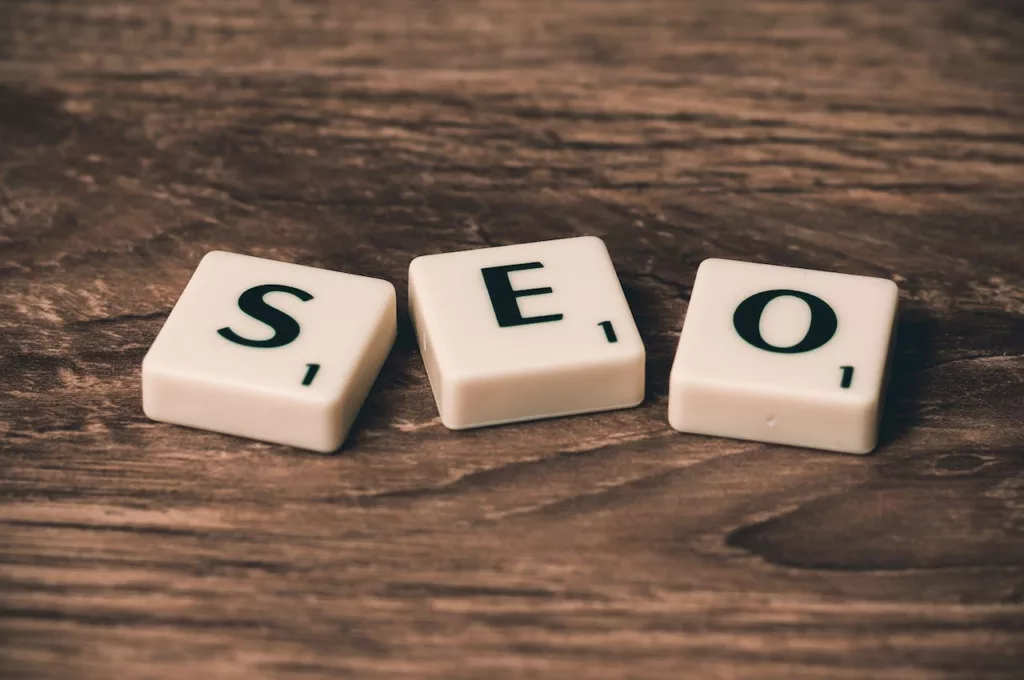Generative AI has the potential to reshape the landscape of SEO, opening new avenues for content creation, keyword optimisation, user engagement, technical priorities and analysis. Let’s delve into some innovative ways to leverage generative AI for your SEO efforts.
Optimising Content for Voice Search
Voice search is gradually becoming the norm, thanks to the proliferation of smart speakers and voice assistants. Generative AI tools that create conversational text can anticipate potential questions from users and optimise content accordingly. This approach ensures your content is ready not only for text-based searches but also for voice queries.
https://www.upgrow.io/blog/generative-ai-for-seo
Enriching Organic Ranking Strategies
Generative AI can unlock next-level organic ranking strategies. For instance, using AI models like GPT-3, you can generate high-quality SEO-friendly content that aligns with the latest search engine algorithms. The key is to provide clear instructions to the AI model about the style, tone, and context of the content you want.
https://yoast.com/generative-ai-and-seo/
https://rankmath.com/blog/generative-ai/
Enhancing User Experience with Relevant Content
User experience is a significant factor in SEO rankings. Generative AI can be used to create relevant content that resonates with your target audience. By analysing user behaviour and preferences, generative AI can generate personalised content, thereby enhancing user engagement and reducing bounce rates.
https://searchengineland.com/generative-ai-seo-integation-433887
Simplifying SEO Research and Ideation
One of the unique benefits of generative AI is its ability to simplify the ideation process. Tools like ChatGPT can generate several topic ideas based on simple prompts. Similarly, AI can be used to automate the research process, helping you collect and analyse data much faster.
https://www.smartbugmedia.com/blog/ai-for-seo
Streamlining Content Structuring
Generative AI is also a boon for content structuring. It can help outline or structure your SEO-oriented content, keeping you organised and focused. This ensures that your content is coherent and follows an SEO-friendly structure meaning you can focus on the detail in the content.
https://blog.google/products/search/generative-ai-search/
Generating Related Keyword Ideas
Generative AI tools like ChatGPT can help generate related keyword ideas based on the phrases you provide. This feature can be incredibly useful in expanding your keyword list and discovering new phrases that your target audience might use.
https://twooctobers.com/blog/ai-and-seo/
However…
There are pitfalls to relying solely on generative AI for SEO. We think it can be a useful tool to support, not lead, the SEO process, in certain areas. There’s no doubt in our minds right now that an experienced human will always win against any AI tool when it comes to SEO or PPC. Here are some general pitfalls to using generative AI presently.
Samey Content
Generative AI operates based on patterns and data it has been trained on. While it can produce content, its ability to generate truly original content is extremely limited with a similar tone repeating itself. Over-reliance on AI tools for content marketing will lead to a lack of originality, which will harm your SEO strategy. If you do use it to generate copy, go in and add your own flair to it.
https://remotesymphony.com/insights/exploring-the-limitations-of-generative-ai-where-it-falls-short/
Poor Quality Content and Downright Wrong Information
Generative AI can sometimes result in poor-quality content, misinformation, and misleading recommendations. Since AI relies on existing web content and data to develop wording, it may inaccurately interpret or represent information, leading to potential inaccuracies.
https://searchengineland.com/ai-generated-content-excel-exercise-caution-433904
https://www.techtarget.com/whatis/feature/Pros-and-cons-of-AI-generated-content
Lack of Creativity and Nuance
AI-generated content may lack the nuance and creativity of human writing. While AI can mimic human writing styles, it often falls short in capturing the subtle nuances that give content a personal touch. This lack of creativity could make your content seem generic, reducing user engagement and potentially affecting your SEO rankings.
Duplicate Content
Broad use of AI increases the risks of generating duplicate content. Since many AI tools use similar databases for content generation, there’s a chance that the same phrases or information could appear across different websites. Search engines like Google penalise duplicate content, which could negatively impact your SEO efforts.
https://www.skyword.com/contentstandard/the-impact-of-generative-ai-on-seo/
Ethical Concerns
Relying heavily on AI tools may lead to a decrease in human jobs, raising ethical concerns. While AI can automate certain tasks, completely replacing human effort with AI could have significant implications for the workforce.
https://victorycto.com/pros-and-cons-of-ai-on-seo-marketing/
Copyright Concerns
Generative AI raises complex copyright concerns, particularly around ownership and infringement. As AI systems generate content based on existing data, it can be challenging to determine who owns the copyright to the created content. Additionally, there’s a risk that AI could inadvertently create content that infringes upon existing copyrights, as it may reproduce elements from copyrighted works it was trained on.
The issue of copyright and generative AI has been a hot topic recently (at the time of writing), with several lawsuits filed against AI companies:
- Artists vs. OpenAI: Artists accused OpenAI of violating their rights by using their digital images to train AI image-generators.
- Artists vs. Stability and other AI companies: Artists alleged that these companies misused their work to train AI. A US judge found flaws in the lawsuit but allowed for a new complaint.
- Getty vs. AI tools: In a separate lawsuit, Getty alleged that AI tools violate copyrights by scraping images from the internet to train AI models.
- Users vs. Prisma Labs: Prisma Labs, the company behind the Lensa app, faced a lawsuit alleging illegal usage of users’ data.
- Class-action lawsuit against GitHub, Microsoft, and OpenAI: The first case involving generative AI was a class-action lawsuit filed against these tech giants.
- Underage individuals vs. OpenAI and Microsoft: More than a dozen underage individuals filed suit against OpenAI and Microsoft in connection with the development and marketing of AI tools.
Google is Policing AI-Generated Content
Google’s algorithms are adapting by design to prioritise high-quality, original content and penalise AI content. Therefore, generic or duplicate content generated by AI tools may not perform well in search rankings in the long run. Google also emphasises that content should provide value to users, be easy to navigate, and offer an overall positive user experience. AI-generated content that lacks originality or provides inaccurate information is likely to fall short of these standards.
https://blog.google/products/search/generative-ai-search/
In conclusion, while generative AI can be a useful tool for SEO, it’s crucial to balance its use with human input and oversight. Ensuring your content is original, accurate, and engaging will help maintain your SEO rankings and provide a better user experience.

